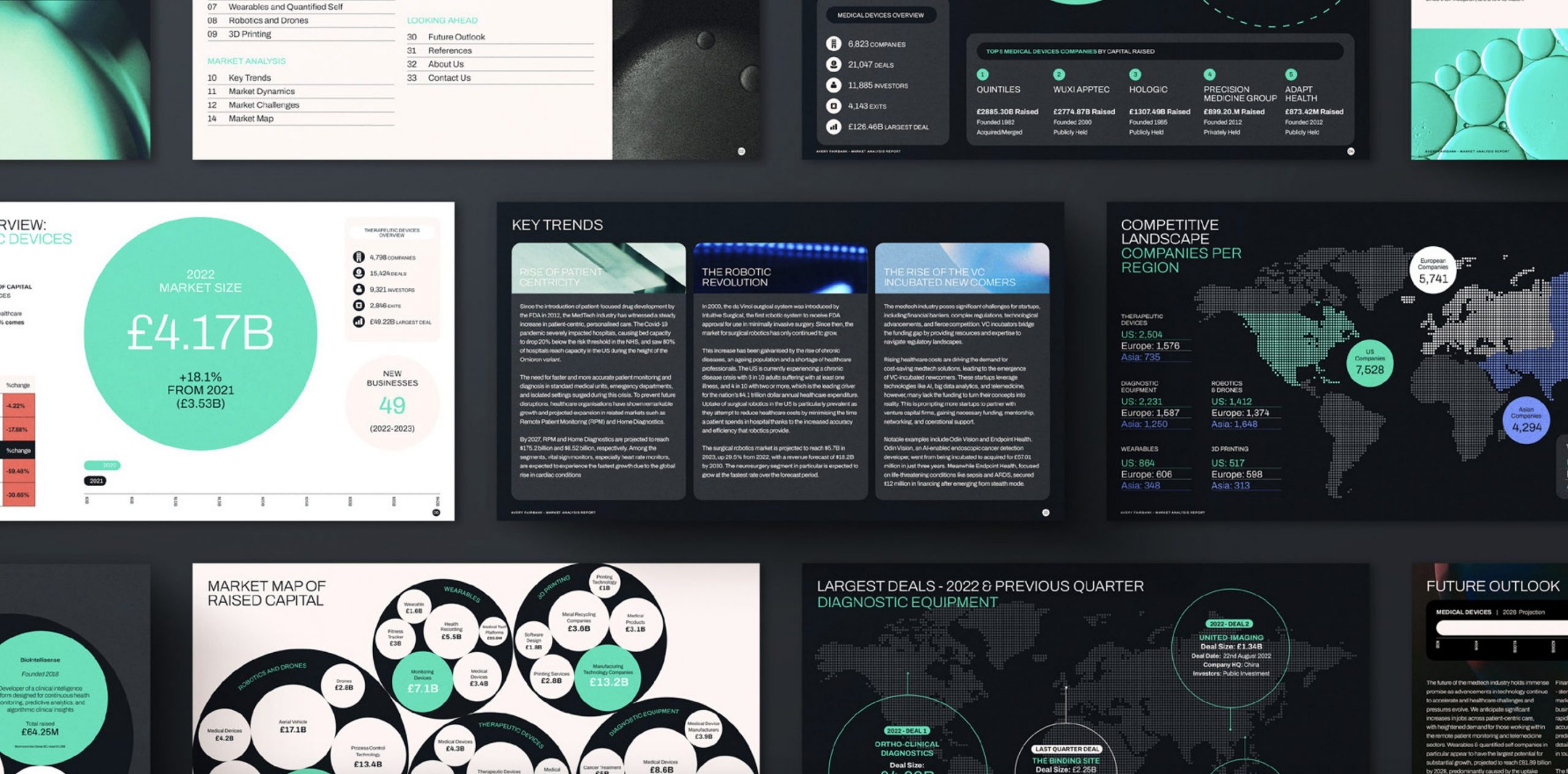August 2, 2023
The medical wearable technology industry is continuously evolving and witnessing groundbreaking innovations. Within this dynamic sector, several emerging companies have garnered significant attention from investors, experts, and medical professionals due to their cutting-edge technologies and the potential to revolutionise patient care.
In this article, we will closely examine three of these pioneering companies that are driving transformative advancements in the medical wearable technology industry. Through their innovative wearables and novel approaches to healthcare, these companies are on the path to reshape the future of the healthcare landscape, positively impacting the lives of countless individuals worldwide.
Applied Cognition
Applied Cognition, a pioneering force against Alzheimer’s, received £14.65 million in seed funding in October 2021. They were also awarded £390,000 (USD 514,800) by the UKRI for their work at the University of Strathclyde. Their team includes experts from reputable US institutions, specialising in Alzheimer’s. With 47 million Americans affected by Alzheimer’s and projected care costs reaching $345 billion in 2023, making the disease more expensive to treat than cancer and heart disease, Applied Cognition aims to develop an AI personal companion to aid memory, boost confidence, and combat depression in those with Alzheimer’s and dementia, addressing a critical need in the absence of effective treatments.
Applied Cognition’s revolutionary project, AMPER (Agent-based Memory Prosthesis to Encourage Reminiscing), takes a new AI-driven, user-centred approach to Alzheimer’s care. Using personalised storytelling, AMPER aims to evoke memories in patients. With AI agents possessing human-like memory capabilities, AMPER adapts to the ever-changing needs of individuals with dementia. Dr. Mario Parra Rodriguez, Senior Lecturer in Psychology and director of the Applied Cognition Lab at Strathclyde, has developed cognitive-oriented frameworks for personalised assessments and interventions. Speaking on the product’s future, Dr Rodriguez said that the project’s long-term vision is to “help demonstrate how AI companions can become more widely used and integrated into domestic, educational, health and assistive-needs settings.”
The AI technology, once developed, will be accessible through a tablet-based interface, ensuring widespread availability and affordability. Additionally, the team intends to explore the use of a desktop robot to assess the advantages of a 3D character representation. With pioneering efforts in developing a revolutionary medical device, the future looks immensely promising for the business. Positioned to become the world’s first treatment capable of reversing the debilitating effects of diseases like Alzheimer’s and Parkinson’s, their innovation holds immense potential for transformative advancements in healthcare.
Orbit Health
With limited doctor-patient interactions occurring every three to six months, physicians struggle to gain a comprehensive understanding of symptoms and treatment responses. This snapshot approach hinders the identification of optimal medications for individual patients. To address this issue, Orbit Health has developed the Neptune app, securing £3.25 million in funding since their establishment in 2021 to support their work. By providing continuous monitoring and insights, the app aims to bridge the gap between patients and doctors, significantly improving the quality of life for individuals battling Parkinson’s.

Orbit Health utilises artificial intelligence to monitor Parkinson’s patients through a smartwatch, providing doctors with continuous insights for effective personalised care. Patty Lee, CEO and co-founder, sheds light on the process, stating, “the patient wears a smartwatch and downloads the Neptune app on the mobile phone. That smartwatch collects data about the patient, such as their heart rate, the number of steps, or their sleep patterns. The raw data is then processed by our artificial intelligence.” Once the data is processed, it is sent to the doctor treating the patient, providing them with a comprehensive overview. This detailed information equips doctors to offer more insightful and informed advice. This innovative approach allows doctors to access 24/7 insights via the Neptune app, adjusting medications for optimal symptom control and significantly improving the healthcare system.
With an ageing population driving the demand for innovative solutions like Neptune, Orbit Health stands poised to capitalise on the burgeoning digital health trend, positioning themselves as industry leaders. As Neptune undergoes regulatory approvals, the product’s potential to revolutionise Parkinson’s treatment and enhance the quality of life for those affected becomes evident. With the prospect of transforming patient care, Orbit Health’s future in the sector looks promising and impactful.
Sencure
Founded in 2021 as a medical branch of Semiconductor Ideas to the Market (ItoM) B.V., Sencure traces its roots back to ItoM Medical B.V., established in 2018. Having amassed funding of £1.29 million, this Dutch startup demonstrates its proficiency in developing cutting-edge chips to revolutionise electrophysiological parameter measurement on the human body. Sencure boasts a robust collection of signal processing algorithms that can be seamlessly integrated into medical devices through IP licensing. Their advanced chip technology holds the potential to elevate the quality, speed, and compactness of medical wearable devices, heralding a new era of innovation in the healthcare industry.
Sencure’s advanced products measure vital bioelectrical data, enabling accurate diagnostics and remote patient monitoring for cardiac cases, COPD, neurological issues, and more. Led by CEO Dick Van Waes, their team comprises chip designers, medical device developers, and sales specialists. Regarding their first generation 8-channel biopotential sensing chip expected to launch mid-2023, Van Waes said the product “will accelerate health care innovations making use of revolutionary measurement technology while reducing power consumption”. Its versatility extends to ICU-grade ventilation, vital sign monitoring, COVID-19 symptom tracking, athlete training, and stress/activity monitoring.
Jurryt Vellinga, Ex-CEO of Sencure and now a Strategic Advisor, revealed plans to expand the team and develop truly distinctive solutions by integrating experts in medical device development and marketing. Vellinga said “breakthrough technology must be developed to solve the growing problems of various patient groups” which includes challenges caused by the rise of chronic diseases and limited access to healthcare. To meet the increasing demands of remote monitoring and home healthcare, the focus is on smaller, power-efficient, user-friendly, and patient-centric technology.
If you’re interested in further in-depth analysis of the medical devices industry; including deals, key players, trends and challenges from the last year and quarter, you can register interest for our exclusive Market Analysis Report.

Published on 02-08-2023


